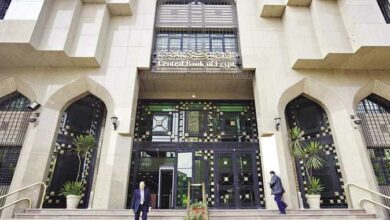Moody’s decided on Thursday to maintain Egypt’s credit rating at B2 based on negative mid-range forecasts for the nation’s economy due to its current “sensitive political situation.”
The credit rating agency had lowered Egypt's rating to B2 last September, less than a year after the 25 January revolution and prior to presidential elections in June.
The agency moved to keep Egypt’s credit rating steady and not lower it at this time due to “developments in maintaining political stability since the election of President Mohamed Morsy, and the progress the country has achieved in the political transition to civilian rule,” Moody’s said.
"While the national reserve decreased from US$36 billion in December 2010, the reserves are more than adequate to provide for external debt in the next year. This reserve would have decreased, were it not for support from Qatar and Saudi Arabia,” the agency continued.
Ongoing talks between Egypt and the International Monetary Fund regarding a potential US$4.8 billion loan is a positive factor, the agency noted, but noted that "Moody's … ruled out raising [the nation] to the level of ‘stable’ in the mid-range due to the sensitive political situation and pressures on the balance of payment."
Moody's warned that "it would lower the country’s credit rating in case of political ambiguity blocking progress towards civilian rule, or in case the balance of payment was lowered or reserves from foreign currencies decreased."
Edited translation from AFP




